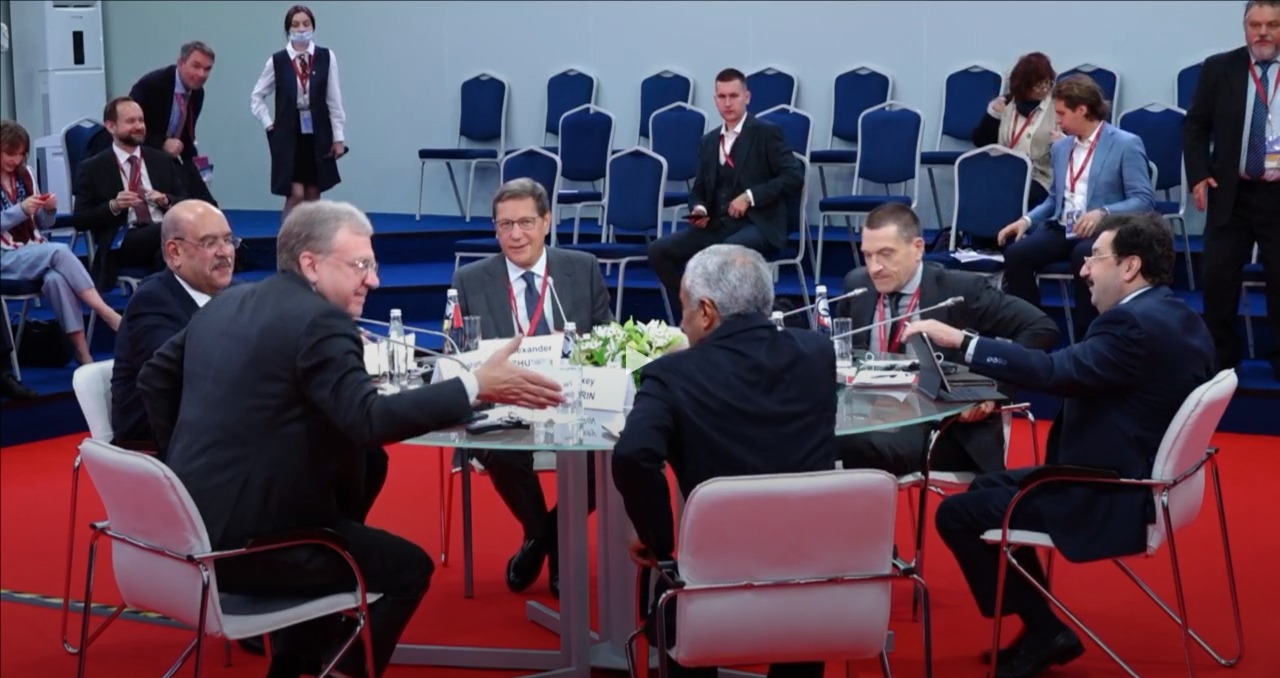
SPIEF session “Government Audit in the New Normal: Accountability Culture Creation”
On June 17, the Accounts Chamber of the Russian Federation, as INTOSAI Chair, organized a panel session “Government Audit in the New Normal: Accountability Culture Creation” within the framework of the 25th St. Petersburg International Economic Forum (SPIEF).
The discussion on the role and place of the audit in the governance of the future, internal and external conditions for the evolution of auditing was conducted by:
- Aleksei Kudrin, Chairman of the Accounts Chamber of the Russian Federation, Chair of INTOSAI
- Harib Al Amimi, Head of the Supreme Audit Institution of the United Arab Emirates
- Hesham Badawy, Head of the Accountability State Authority of the Arab Republic of Egypt
- Igor Lotakov, Managing Partner of the Technologies of Trust
- Alexander Zhukov, First Deputy Chairman of the State Duma of the Federal Assembly of the Russian Federation
The session was moderated by Vladimir Mau, Rector of the Russian Presidential Academy of National Economy and Public Administration (RANEPA).
Engaged in the topic of improving the efficiency of public administration the speakers shared their experience in building communication and trust between civil society and public authorities. Harib Al Amimi emphasized the special role of SAIs in ensuring smooth and effective public administration during an emergency situation:
“The pandemic and global instability put the need to improve public administration systems and their focus on the civilian needs on the radar again”
The discussion also touched on the methods for assessing and preventing risks in the implementation of national development strategies. According to Hesham Badawi, SAI Egypt is largely guided by the national program "Vision 2030". The head of the Accountability State Authority specifically noted that while developing recommendations SAI Egypt relies on the information obtained through Big Data and AI-analysis:
“One of the goals that the national government has set for public sector agencies is to develop the digital aspect of our work.”
Commenting on current trends in the audit field, Igor Lotakov indicated that nowadays auditors are inclined to focus less on processes while paying more attention to the final results of the audited objects’ performance:
“Under such conditions, the effectiveness of decisions based on the results of the audits will promote building confidence”
The importance of international agreements and institutions for the good governance was widely discussed. Panelists emphasized the significance of international experience for the national policies and practices. In this context, the efforts of the Accounts Chamber of the Russian Federation to develop the professional capacity of the Russian and international audit community through the Digital University for INTOSAI Community (U-INTOSAI) were acknowledged.
During the Q&A session, the heads of SAIs gave examples of the most effective audits conducted in terms of identified risks and recommendations adopted based on their analysis. Hesham Badawi highlighted SAI Egypt’s recommendations regarding national projects for wireless communications, renewable energy, drainage systems, land and infrastructure usage for agricultural purposes. In turn, Aleksei Kudrin stressed the results of three audits made by the Accounts Chamber of the Russian Federation:
- the analysis of federal programs to combat poverty led to the expansion of financial support for families with children aged from 4 to 17
- the audit of state-owned enterprises (SOEs) revealed the shortage of data about the number and performance quality of SOEs. After the publication of the report, measures were taken to standardize data from various registers, strengthen control over the results of the work of the SOEs’ management
- the audit of the state program for the payment of maternity capital revealed the presence of unspent funds in the amount of 4.7 billion rubles, which were transferred to become an unplanned social support package to the population.
At the end of the session Alexander Zhukov suggested paying close attention to the public procurement sector due to its high exposure to corruption risks, as well as strengthening control at the preparation stage of the national projects and providing recommendations not only on the basis of their implementation.



